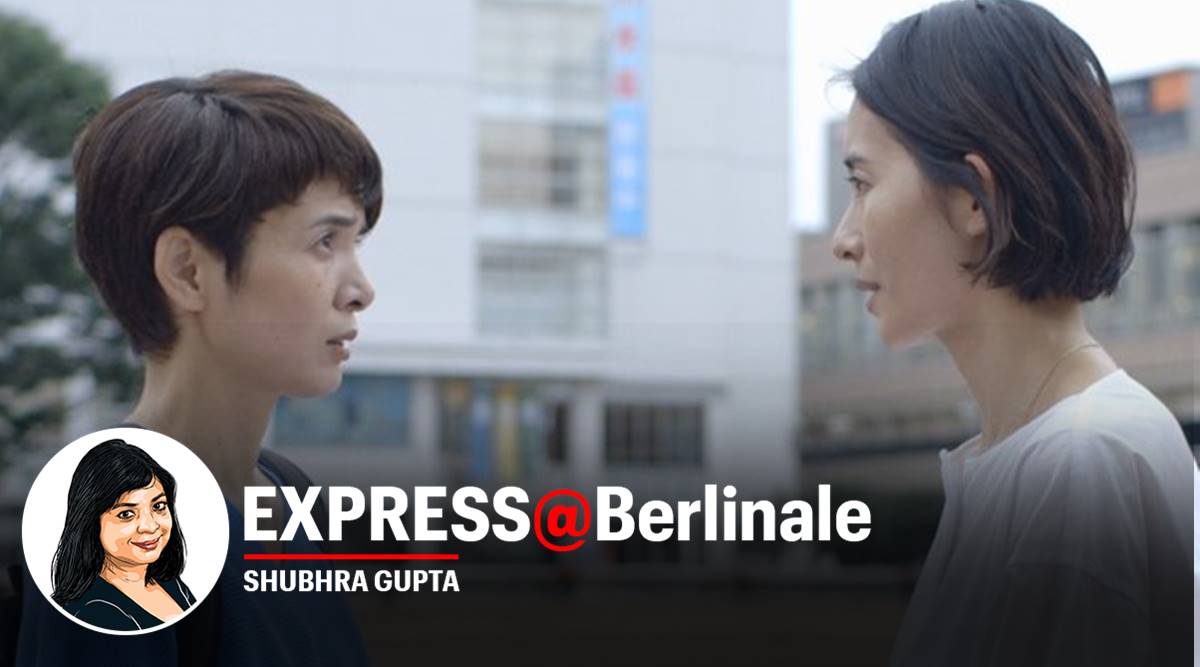Express at Berlinale: Wheel Of Fortune And Fantasy presents a delicate portmanteau of love and longing
Rysuke Hamaguchi’s ‘Wheel Of Fortune And Fantasy’ (Guzen To Sozo) freshens the overused device of splitting the narrative in several disparate parts, resulting in a film that’s winsome yet oddly profound. It has won the Silver Bear grand jury award at the just concluded 71st (virtual) edition of the Berlin International Film Festival.
Two best friends are catching up in the back of a car. Meiko has just finished with a tiring day’s work, and is now listening to Tsugumi talking excitedly about a guy she’s just met. He’s apparently perfect. Good-looking, attentive, nice to talk to, and, wait for it, not interested in jumping her bones on the first date. He’d rather hold on, giggles Tsugumi. Isn’t that something? Meiko heads out into the night, having dropped off her friend, and fetches up at a plush office, nearly deserted at that late hour. Where sits a good-looking man. Is he as attentive and nice to talk to, as the one Tsugumi met?
The exchange between Meiko and the man-in-the-office, which starts off as an altercation before simmering down, is revelatory. He is an ex, but has Meiko left him behind as much as she hoped? What happens when residual feelings are rekindled? This first part, labelled ‘Magic, Or Something Less Reassuring’ taps into the complications that arise when two people break up: is it always possible to move on? Perhaps it is, and perhaps in that moving on, is both a closure and a new beginning.
The second part, ‘Door Wide Open’ references a professor who insists on leaving his office door open when students, especially attractive female students, are in the room. This practice should have stood him in good stead when the sexy Nao shows up, and puts into motion an alarmingly dodgy ruse. We know the backstory: a vengeful student has asked this self-same Nao to turn into a ‘honey trap’ in order to ruin the teacher’s reputation. What we don’t know is how it will pan out.
Sexually explicit words shared out loud between two people can lead to arousal, and the fallout thereof. For someone who is ultra-cautious, the professor seems strangely oblivious to the inappropriateness of the situation. Isn’t it awkward for him? Is he for real? The interlude shows us that a certain kind of naivete can be dangerous, and actions have consequences.
We are excited to announce the Golden & Silver Bears as well as the awards in the Encounters section of the 71st Berlin International Film Festival. #Berlinale https://t.co/CyfMZzQklF
— Berlinale (@berlinale) March 5, 2021
The third segment, my favourite, is about an unexpected, life-altering encounter between two women. ‘Once Again’, shot during the pandemic, mentions a virus which has destroyed all advanced forms of communication, and Tokyo has lapsed back into a pre-computer era. Moka, in town for a high-school reunion, is on her way back when she spots someone she was hoping to reconnect with. Is Nana, now grown into a graceful woman living a comfortable suburban life, the same girl?
No digital footprints means that we have to rely on our notoriously fickle memories. Nana was Moka’s first love, and that was many years ago, but the heart doesn’t forget a soulmate. The two women exchange notes over civilised tea, and in that short period, the safe veneer of respectability worn to disguise real feelings starts to crack. And as they part, we hope that it will be the start of a more meaningful life than the one they’ve lived so far, the best kind of note to leave a movie on.

